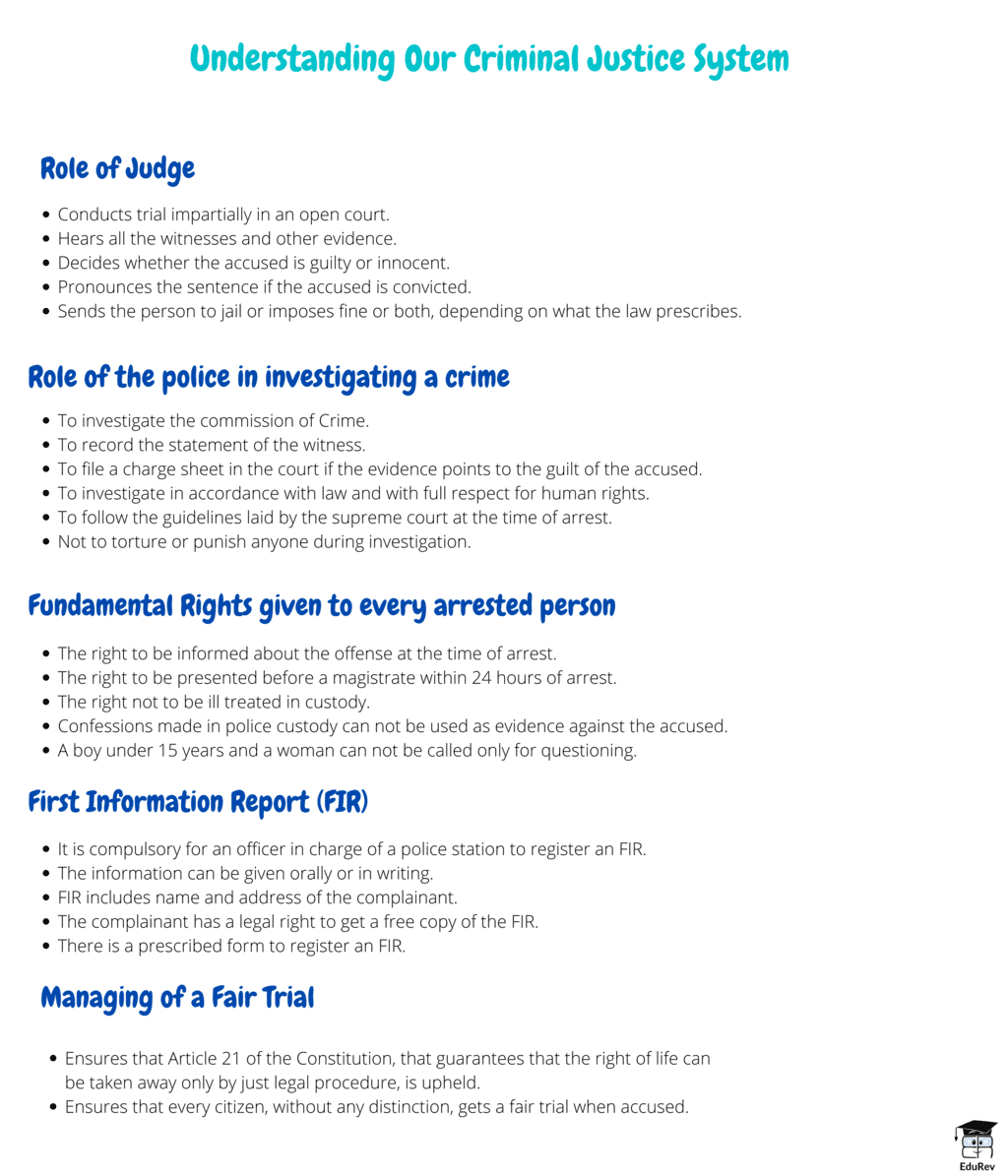UPSC Exam > UPSC Notes > Class 6 to 12 NCERT Mindmaps for UPSC Preparation > Mind Map: Understanding Our Criminal Justice System
Mind Map: Understanding Our Criminal Justice System | Class 6 to 12 NCERT Mindmaps for UPSC Preparation PDF Download

The document Mind Map: Understanding Our Criminal Justice System | Class 6 to 12 NCERT Mindmaps for UPSC Preparation is a part of the UPSC Course Class 6 to 12 NCERT Mindmaps for UPSC Preparation.
All you need of UPSC at this link: UPSC
FAQs on Mind Map: Understanding Our Criminal Justice System - Class 6 to 12 NCERT Mindmaps for UPSC Preparation
| 1. What is the purpose of the criminal justice system? |  |
Ans. The purpose of the criminal justice system is to maintain social order, enforce laws, and provide justice by apprehending and punishing individuals who have committed crimes. It aims to protect the rights of both victims and offenders, deter criminal behavior, rehabilitate offenders, and ensure fair and impartial treatment throughout the legal process.
| 2. How does the criminal justice system work? |  |
Ans. The criminal justice system typically involves several stages. First, a crime is reported and an investigation is conducted by law enforcement agencies. If there is enough evidence, the case is presented to a prosecutor who decides whether to file charges. The defendant then goes through the court process, which includes arraignment, trial, and sentencing if found guilty. After sentencing, the offender may be subject to probation, incarceration, or other forms of punishment, depending on the severity of the crime.
| 3. What are the key components of the criminal justice system? |  |
Ans. The key components of the criminal justice system include law enforcement agencies (police, detectives, etc.), the court system (judges, attorneys, juries), and correctional institutions (prisons, probation, parole). Each component plays a crucial role in maintaining law and order, ensuring justice, and preventing future criminal activity.
| 4. What rights do individuals have within the criminal justice system? |  |
Ans. Individuals within the criminal justice system have several rights, including the right to remain silent, the right to legal representation, the right to a fair trial, the right to confront witnesses, the right to be presumed innocent until proven guilty, and protection against unreasonable searches and seizures. These rights are protected by the constitution and aim to ensure that individuals are treated fairly throughout the legal process.
| 5. How does the criminal justice system address rehabilitation? |  |
Ans. The criminal justice system acknowledges the importance of rehabilitation in preventing future crimes. Rehabilitation programs can be offered within correctional institutions or as part of probation or parole. These programs may include educational classes, vocational training, counseling, substance abuse treatment, and mental health support. The goal is to address the underlying causes of criminal behavior and provide offenders with the necessary tools to reintegrate into society as law-abiding citizens.
Related Searches





















